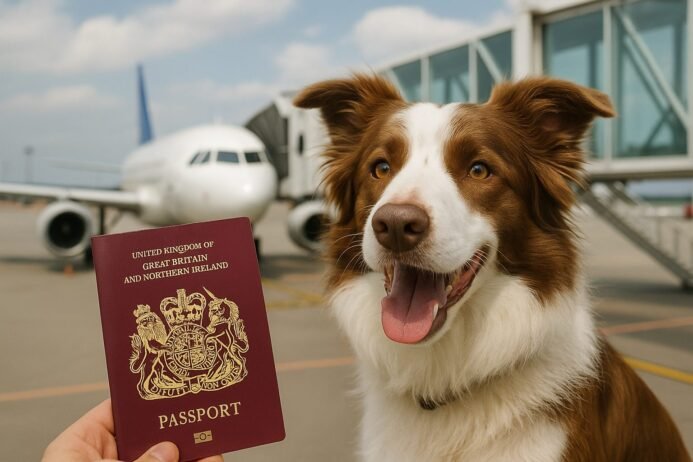Changes to UK pet travel rules (post-Brexit updates)
- 20 September 2025
- BuyAPet Editorial Team
- All Cats, All Dogs, BuyAPet User Articles (Support), Pet Law, Pet News
Changes to UK pet travel rules (post-Brexit updates)
A straightforward guide for taking your dog, cat or ferret between Great Britain, the EU and Northern Ireland—what’s changed, what you’ll need, and when to book it.
Overview
What changed after Brexit?
Great Britain (England, Scotland, Wales) is now treated by the EU as a “Part 2 listed” country for pet travel. That means the old UK-issued EU Pet Passport is no longer valid for new trips to the EU. Instead, most GB-based travellers need an Animal Health Certificate (AHC) issued by an Official Vet for each trip to the EU or Northern Ireland.
Documents & timing
Step 1
Microchip
Your pet must be microchipped with an ISO-compliant chip that can be scanned at the border.
Step 2
Rabies vaccination
Get vaccinated by your vet and keep records. For the first jab you must wait 21 days before travel. Boosters follow your vet’s schedule.
Step 3
Animal Health Certificate (AHC)
An Official Vet issues the AHC within 10 days of entry to the EU/NI. One AHC per trip; keep it safe during travel.
Handy list
Quick checklist before you book
- ✅ Pet is microchipped and details are up to date.
- ✅ Rabies vaccination in date (first jab + 21-day wait).
- ✅ Appointment for an AHC within 10 days of EU/NI entry.
- ✅ Tapeworm treatment booked if required (dogs).
- ✅ Transport operator checked for their specific pet rules.
- ✅ Carrier & muzzle if required; water & comfort stops planned.
Sea & Tunnel
Ferries & Eurotunnel
- Book a pet space; some routes require pets to remain in the vehicle or use onboard kennels.
- Have documents ready for check-in (AHC, microchip details, vaccination proof).
- Allow extra time at the terminal for compliance checks.
Flights
By air
- Airlines have strict crate sizes and breed policies—check before you book.
- Arrive early for document and crate inspections.
- Confirm return requirements into GB, including tapeworm for dogs.
Return & inbound
Travelling to Great Britain
- Pets must be microchipped and vaccinated against rabies.
- Dogs usually need tapeworm treatment 24–120 hours before entry (check exemptions).
- Enter via an approved route and declare pets with the carrier.
FAQs
Do I still need an AHC if I have an old UK-issued EU Pet Passport?
Yes. For travel from Great Britain to the EU or Northern Ireland, an AHC is usually required even if you hold a UK-issued EU Pet Passport.
How long is an AHC valid for?
It’s valid for entry into the EU/NI within 10 days of issue, remains valid for onward travel in the EU, and can be used to re-enter GB.
What documents do I bring to the AHC appointment?
Microchip details, rabies vaccination record (dates/batch), pet identity info, and your travel dates/entry point. Your Official Vet completes and stamps the AHC.
Can my pet use an EU Pet Passport instead?
An EU-issued passport (issued in the EU or NI) may be used if vaccinations are kept current. GB-issued passports generally require an AHC for EU/NI entry.
When should I book everything?
As early as possible. Time your AHC within 10 days of EU/NI entry and allow for weekends/bank holidays. Reserve ferry/tunnel/airline pet spaces well in advance.
Do dogs always need tapeworm treatment?
Often yes—24–120 hours before entering some countries and before returning to GB. Check your route and ask your vet for current rules.
Need more guidance?
This article is for general guidance only and may not reflect the most recent regulatory updates. Always confirm with your vet, the destination authority and your transport provider.
